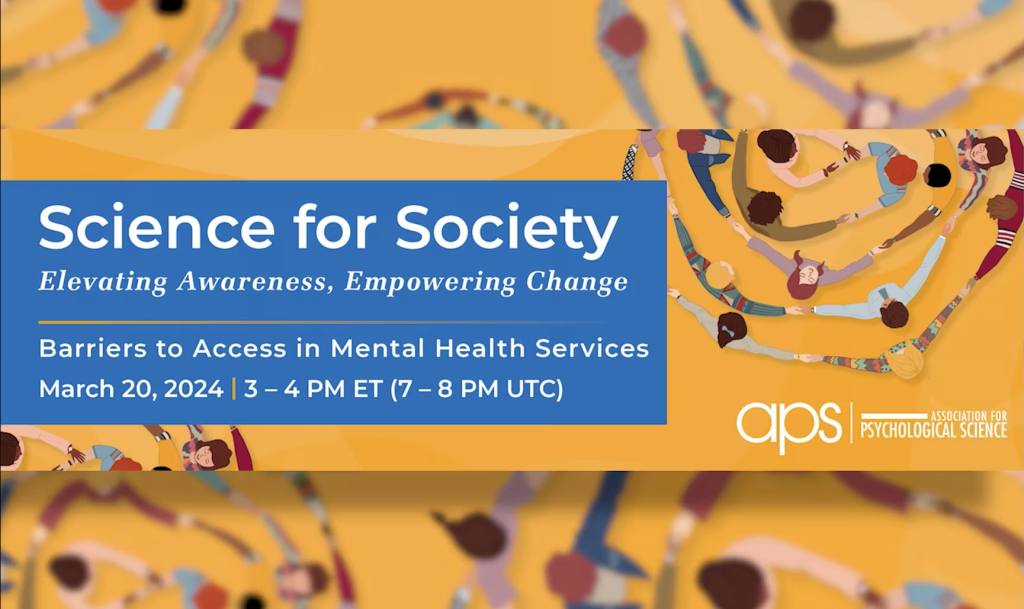Science Breaks Through the Barricades to Mental Healthcare

With demand for mental healthcare skyrocketing, scientists and clinicians are identifying the obstacles to services that underserved populations face and developing digital innovations to serve them. A panel of psychologists discussed these findings and initiatives in Barriers to Access in Mental Health Services, an APS Science for Society webinar held March 20.
Nadika Paranamana (Yale of School of Medicine) shared research showing the barriers that people of color, immigrants, and LGBTQ+ individuals face in securing quality psychological help. A 2020 study she conducted with colleagues at Yale and New York University showed that mental health providers trained in person-centered care exhibited implicit biases toward minority clients. That aim of the research, she said, was “not to blame the providers” but to identify and remedy the Eurocentric norms baked into the mental healthcare system.
In addition to provider shortages, people in marginalized communities face financial constraints in accessing care, said Giovanni Ramos (University of California, Irvine). Digital services, he said, pack the potential to reach those populations. Ramos shared his involvement in testing Mind-Us, a digital mindfulness app designed for people of color facing race-related stress. All individuals targeted in the trial downloaded the app, which spurred a clinically significant reduction in their symptoms, he said.
“I don’t think digital interventions are going to be a panacea but play a role in reducing [access barriers],” Ramos said.
Also on the webinar panel was clinical psychologist Ashley Castro, who is executive director of Healwise, a nonprofit organization dedicated to widening access to affordable mental healthcare. Healwise provides a platform to guide consumers through what Castro describes as an “obstacle course” of finding, understanding, and accessing professional services and community support. Castro likened Healwise to the crowdsourced consumer information service Yelp.
A recording of the webinar is available below for registrants and APS members.
The webinar is available to APS members and registered workshop attendees.
Feedback on this article? Email [email protected] or login to comment.





APS regularly opens certain online articles for discussion on our website. Effective February 2021, you must be a logged-in APS member to post comments. By posting a comment, you agree to our Community Guidelines and the display of your profile information, including your name and affiliation. Any opinions, findings, conclusions, or recommendations present in article comments are those of the writers and do not necessarily reflect the views of APS or the article’s author. For more information, please see our Community Guidelines.
Please login with your APS account to comment.